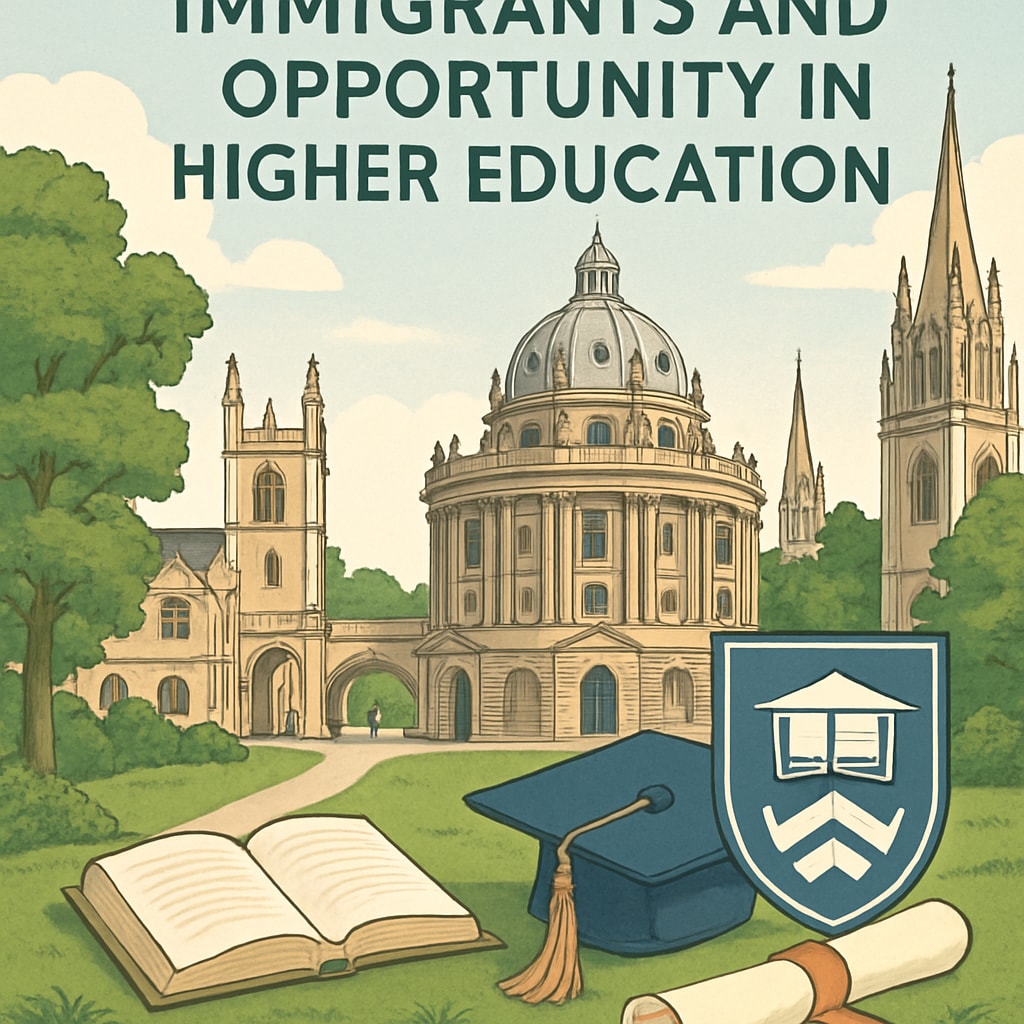For immigrant students at prestigious institutions like Oxford University, the dream of higher education is often overshadowed by the reality of exorbitant international tuition fees. These students, many of whom have lived in their host countries for years, find themselves classified as “international students” due to their immigration status. As a result, they are required to pay significantly higher fees than their domestic peers, creating a substantial barrier to accessing education. This article delves into the challenges posed by such disparities, examines their broader societal implications, and proposes potential solutions for a more equitable education system.
The Hidden Struggles of Immigrant Students
Immigrant students often face a unique set of challenges when pursuing higher education. While many have spent years integrating into their host countries, their immigration status frequently determines their classification as international students. This label comes with financial consequences, as international tuition fees are often two to three times higher than those for domestic students.
Take the case of a Nigerian immigrant student at Oxford University. Despite having spent significant time in the UK, this student was charged international tuition fees, which exceeded £26,000 annually for undergraduate programs, compared to around £9,250 for domestic students. Such financial barriers can lead to difficult decisions, including taking on significant debt, working excessive hours, or, in some cases, abandoning their academic aspirations altogether.

Financial Inequality and Its Broader Implications
The disparity in tuition rates raises important questions about education equity. Immigrant students contribute to the social and cultural fabric of their host countries, often excelling academically and contributing to community development. However, the financial burden imposed by international tuition fees places them at a significant disadvantage.
Moreover, this issue is not unique to the UK. Many countries apply similar policies, perpetuating a global trend of financial inequality within higher education. According to a Britannica article on higher education, such disparities can exacerbate socioeconomic divides, limiting opportunities for talented individuals simply due to their immigration status.

Proposed Solutions for a More Inclusive Education System
Addressing the issue of high international tuition fees for immigrant students requires systemic reform. Here are some potential solutions:
- Reevaluating Residency Rules: Universities and governments could adopt more flexible residency criteria, allowing immigrant students who have lived in the country for a certain period to qualify for domestic tuition rates.
- Expanding Scholarships: Institutions could establish targeted scholarship programs for immigrant students, reducing their financial burden and promoting diversity.
- Policy Advocacy: Advocacy efforts could push for national policies that prioritize education equity, recognizing the contributions of immigrant students to society.
These measures would not only benefit immigrant students but also enhance the overall quality and inclusiveness of higher education systems, fostering a more equitable society.
Conclusion: Bridging the Gap Between Dreams and Reality
The challenges faced by immigrant students, such as high international tuition fees, highlight systemic issues within higher education. Institutions like Oxford University have the opportunity to lead the way in creating more inclusive policies that acknowledge the lived realities of immigrant students. By addressing these disparities, we can move closer to a world where education is a right, not a privilege.
As society continues to grapple with questions of equity and inclusion, the education system must evolve to reflect these values. Immigrant students, with their resilience and determination, deserve the chance to pursue their academic dreams without insurmountable financial barriers. It is time for governments, universities, and communities to come together and create a more just and equitable future.
Readability guidance: Short paragraphs and clear headings improve readability. Transition words like “however” and “in addition” provide a logical flow. Lists summarize key points effectively, while the use of active voice keeps the narrative engaging.


